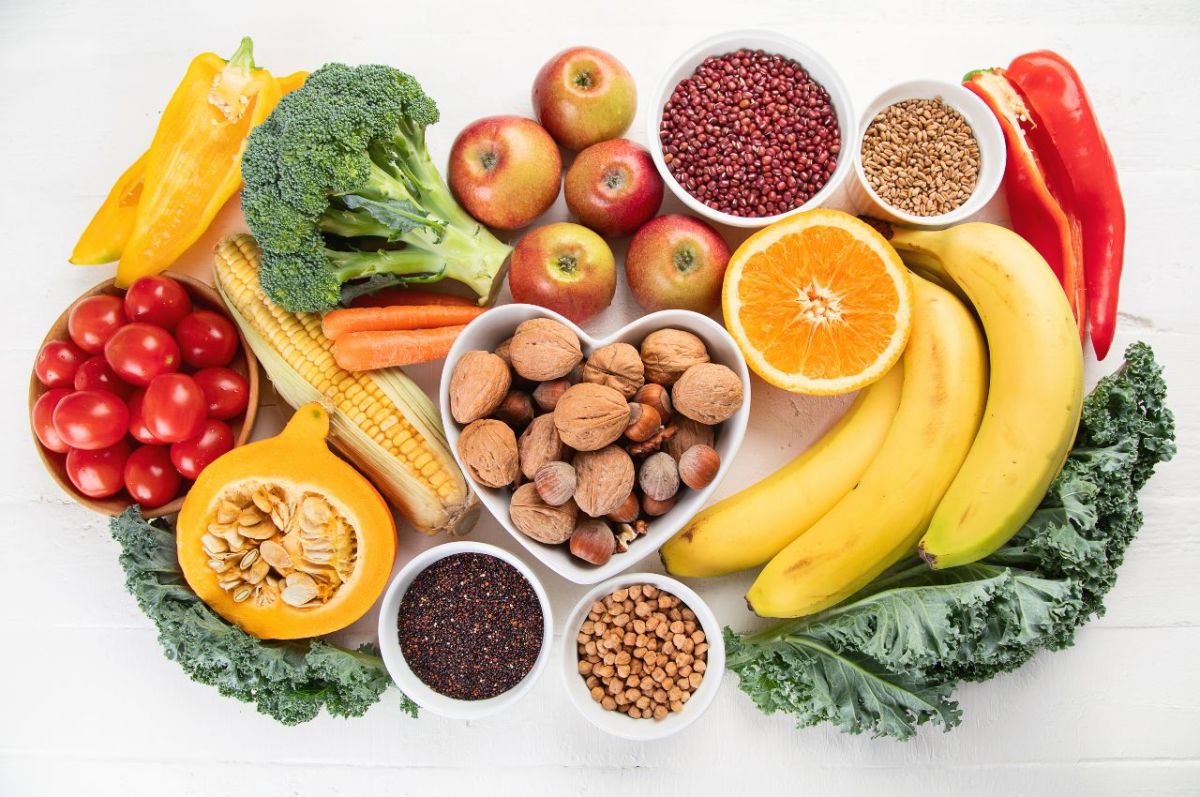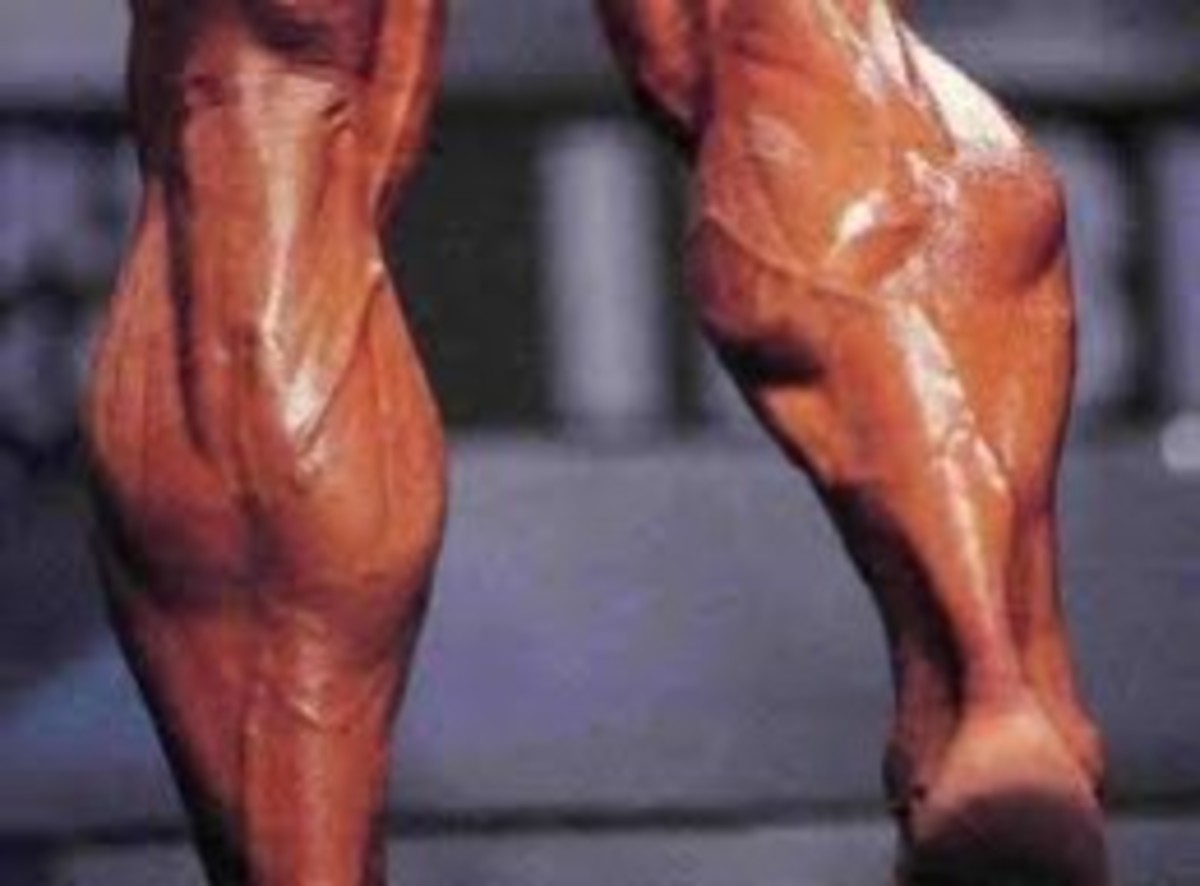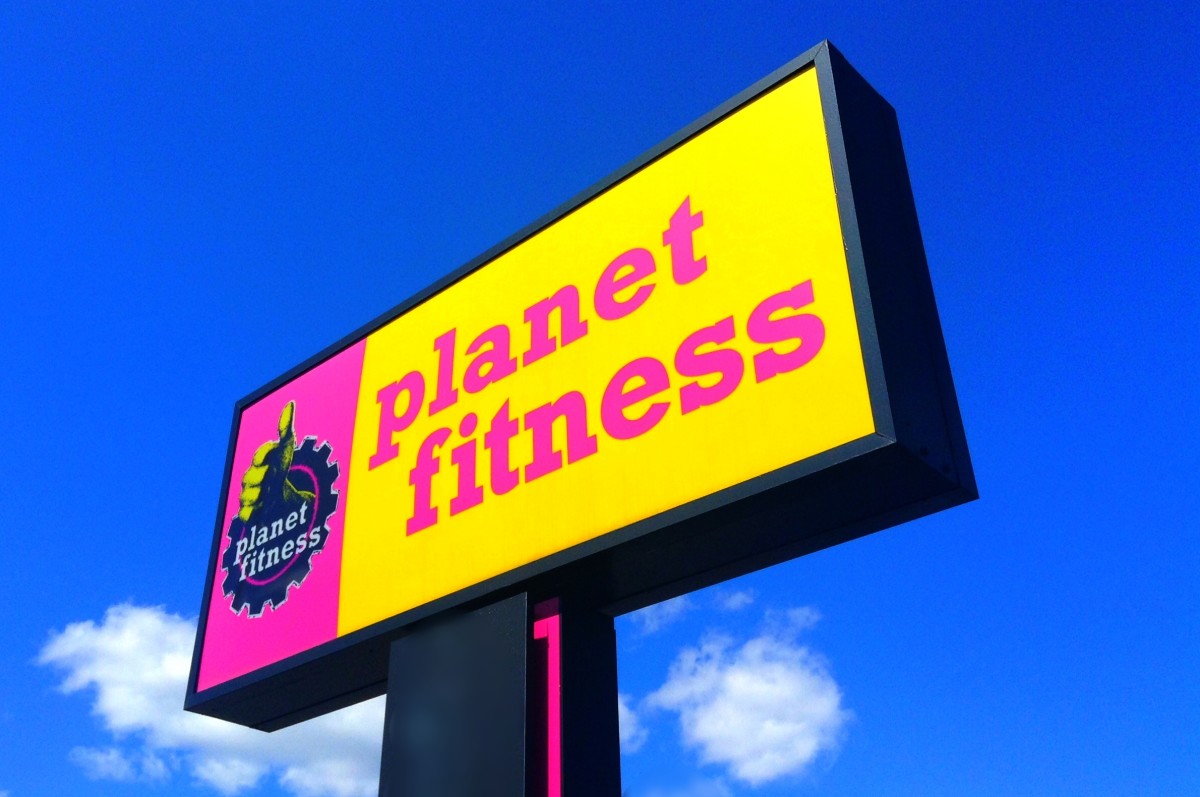Food For Fueling
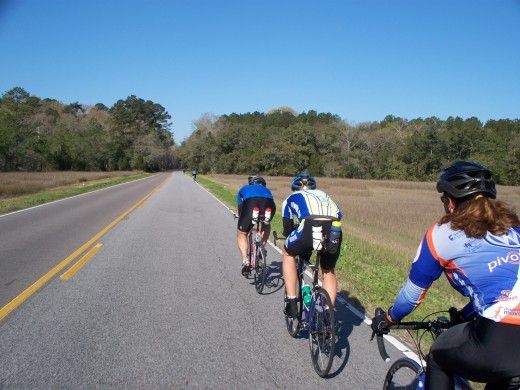

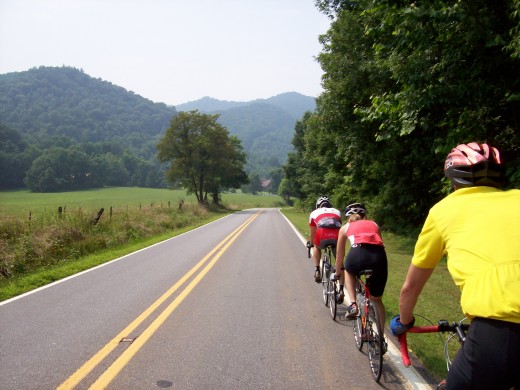
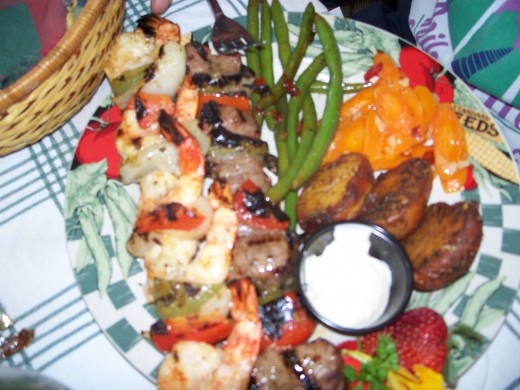
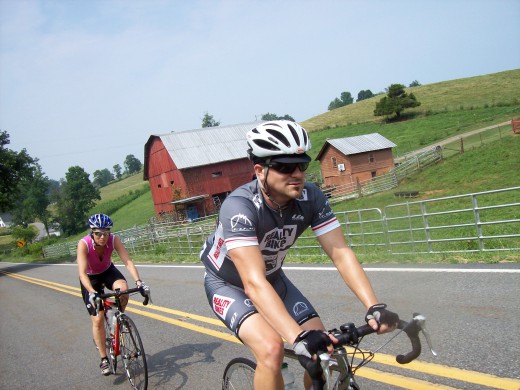
Nutrition
We're all on some diet. Diet usually means we're eliminating something, as in sugar or fat. I have to maintain some discipline or my rear end gets big. That means I have a harder time climbing a hill on my bicycle. It could also mean I could have a harder time hiking up a grade or using a staircase instead of the elevator.
Nutrition is the key word instead. It's okay to sample some "forbidden fruit", but you put in some effort and time, then you are wanting to see results. Therefore it is logical to give your body the best chance of benefiting from the training and competition it receives, by keeping it well supplied with the right kind of food/fuel.
Doctors and nutritionists may tell you often that as long as you're eating a balanced diet, you are unlikely to have deficiencies. This, however, presupposes that you do not have an illness, injury or shock, that you don't sweat over much, and that you don't over extend yourself and for an extended time.
No one can make that assumption, especially a cyclist. Any one of these things and more can lead to an abnormal demand for the body's vital substances.
There must be occasions when balanced supplementation is indicated.
Even with the average person dealing with the stress, of what is ordinary living today, can surely benefit from healthy and healthier foods.
There is more pollution in our water, air, and foods. Most of our foods are coming from unknown origins without any knowledge of the care that is given. Foods are being picked green, shipped in plastic, and gassed so that a "sense" or an "appearance" of ripening can occur. It is the last 72 hours on the vine that give you the most nutrients. A lot of our foods are missing these extra hours and the vitamins from them.
There are certainly medical conditions in which very large doses of vitamins are prescribed, but this should be with expert supervision only.
It is possible to overdose on some vitamins- such as A, D, E, and K -because they are fat soluble, and therefore cannot be carried out of the system in the urine. The water-soluble vitamins B and C can be removed this way when taken in excess, and therefore cannot harm the body.
It can do no harm, indeed, to take an over-the-counter multi-vitamin. At some point our vitamins and minerals will be lacking due to a variety of issues.
At 60 years of age, I go a lot further than that and will lay out my added fuels at the end of this article.
The body will make various demands for:
Energy
Growth and repair
Regulating body processes
These are satisfied in the following ways:
Energy: from carbohydrates
Growth and repair: by means of proteins, trace elements, and water
Regulating the body processes: by means of vitamins, trace elements, water, and certain proteins.
Carbohydrates are the most efficient energy source. Carbohydrates are broken down into glucose, which is ready for action in the muscles in the form of glycogen. Further glycogen is stored in the liver, and any excess is stored in the tissues as body fat. Typical carbohydrate sources are honey, glucose, potatoes, bread, rice, and pasta.
Fats have a higher energy rating, but they are not easily broken down for use as energy fuel. Never take a lot of fats as part of a pre-race meal. Any excess of fats automatically becomes body fat.
Protein is also an energy source, but a poor one. The body calls upon it only when all other energy sources are exhausted.

Nutrients concerned with growth and repair
Proteins (from the Greek word meaning "of first importance"): For growth and repair of the body cells, muscle tissues, etc.
Whole milk, meat, cheese, eggs, fish, beans, peas, corn, bread, soy beans, dry non fat milk
_______________________________________________________________
Calcium, Phosphorous, Magnesium: Formation and maintenance of bones and teeth
Milk, cheese, eggs, sardines, meat, wholegrain cereals, green vegetables, bread, herring
________________________________________________________________
Iron, Phosphorous: Formation and repair of body cells, red corpuscles, liver, muscles
Liver, wholemeal bread, peas, cheese, cereal, fish, cabbage, potatoes
________________________________________________________________
Sulphur: Formation and repair of body cells, red corpuscles, liver, muscles
Available in all protein foods
________________________________________________________________
Sodium chloride: Formation and maintenance of body fluids (i.e. intracellular and intravascular fluids)
Table salt, animal sea foods, abundant in most foods except fruit
________________________________________________________________
Potassium: Formation and maintenance of body fluids (i.e. intracellular and intravascular fluids)
Fruit, milk, meat, cereals, vegetables
________________________________________________________________
Water: Formation and maintenance of body fluids and body cells
Most foods contain large amounts of water, plus what is drunk

Nutrients regulating body processes
Phosphorous, Manganese, Copper, Iron: The complex processes by which the body obtains energy from food: efficient oxygenation of the blood
Liver, meat, bread, egg yolk, cheese, peanuts, some sea foods, green vegetables
________________________________________________________________
Iodine: Part of a substance in the thyroid gland regulating the release of energy
Sea foods, vegetables grown in areas where soil contains iodine; iodized table salt
________________________________________________________________
Calcium: Part of the processes involved in blood clotting, muscle function
Milk, cheese, dark green leafy vegetables, sardines, herring, bread
________________________________________________________________
Water: Regulation of body temperature through sweating
Most foods, plus normal liquid intake
________________________________________________________________
Some proteins: Form part of the digestive enzymes
Milk, cheese, meat, fish, eggs
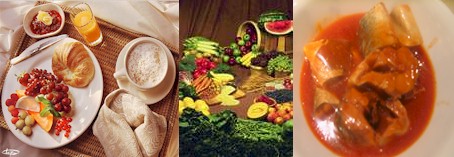
Vitamins are vital to the regulation of the body's processes, and their deficiency can have startling results. When watching your intake of vitamins, bear in mind that they are lost in cooking and storage; so try to eat food fresh and, whenever possible and palatable, raw. It is also a healthy move, to go, where possible, for whole foods- i.e. those without additives and with none of the goodness taken out. In this way, you should be sure of a regular vitamin and mineral supply.

Vitamins, functions, sources, and substances which reduce their effect
Vitamin A (Carotene)- fat-soluble- Promotes skin health, helps resistance to infection, helps bones develop, Maintains good eyesight
Sources: melon, peach, carrot, lettuce, broccoli, parsley, fish-liver oils, butter, margarine, offal, certain nuts
Depleting factors; cortisone and other drugs, excess alcohol, iron consumption, coffee, tobacco
________________________________________________________________
Vitamin B Complex- water soluble
B1 (Thiamine) -Carbohydrate metabolism, energy production, growth, appetite, digestion, nerve activity, gastro intestinal tonus
Sources: wheatgerm, soy-bean flour, brewers yeast, beans, potatoes, cereals, nuts, some fish
Depleting factors: alcohol, antibiotics, birth control pills, coffee, stress, diarrhea, (N.B. increase intake when increasing intake of carbohydrate)
________________________________________________________________
B2 (Riboflavin)- Maintains skin, digestive tractand vision, co-enzyme in respiratory enzyme system
Sources: offal, avocado, soy beans, nuts, cheese, milk, potatoes, cereal
Depleting factors: alcohol, birth control pills, tobacco, coffee
________________________________________________________________
B3 (Niacin)- Circulatory system, growth, maintenance of nervous system, co-enzyme in tissue respiration and fat synthesis
Sources: meat, fish, peanuts, brewers yeast
Depleting factors: alcohol, antibiotics, birth control pills, coffee, corn, tissue trauman
________________________________________________________________
B5 (Pantothenic acid)- Antibody formation, carbohydrate metabolism, stimulation of adrenals, keeps skin and nerves healthy
Sources: liver, spinach, broccoli, eggs, milk
Depleting factors: alcohol, coffee, sleeping pills, stress
________________________________________________________________
B6 (Pyridoxine)- Co-enzyme in protein, fat and carbohydrate metabolism, controls magnesium levels
Sources: liver, herring, potatoes, pork, whole grain cereals, eggs, milk
Depleting factors: aging, alcohol, sleeping pills, radiation exposure, birth control pills
________________________________________________________________
B12 (Cyanocobalamin)- Co-enzyme in protein synthesis, blood cell formation, maintenance of nerve tissue
Sources: offal, egg yolk, cheese, milk, fish, meat
Depleting factors: aging, coffee, laxatives, sleeping pills
________________________________________________________________
B15 (Pangamic acid)- This is a disputed vitamin, whose reputation is the subject of unresolved arguments. However, the Russians have claimed to use it to benefit athletes. Cell oxidation and respiration, increases the body's efficiency in using oxygen, stimulates glucose, fat and protein metabolism
Sources: no natural usable sources, so available only in tablet form
Depleting factors: alcohol, birth control pills, coffee, sleeping pills
________________________________________________________________
Vitamin C (Ascorbic acid)- water soluble- absorption of iron, calcium diffusion, synthesis of collagen, maintenance of blood vessels
Sources: citrus fruits, blackcurrants, rose-hips, cabbage, Brussels sprouts, tomatoes, potatoes
Depleting factors: antibiotics, anxiety, aspirin, burns, cortisone, sulfa drugs, tobacco, stress
________________________________________________________________
Vitamin D (Calciferol)- fat-soluble, normal growth through bone growth, absorption of calcium and phosphorous, gland and nerve function
Sources: tuna, halibut- and cod-liver oils, herring, sardines, butter, margarine, milk, eggs, sunlight
Depleting factors: mineral oils
________________________________________________________________
Vitamin E (Tocopheral)- fat-soluble, normal growth maintenance, normal muscle metabolism, maintains integrity of central nervous system and circulation, maintains kidney tubules, lungs, genital structures and liver
Sources: lettuce, corn, green peppers, peanuts, wheatgerm, whole-wheat flour
Depleting factors: air pollution, birth control pills, iron
________________________________________________________________
Vitamin K (Menadione)- fat-soluble, Normal blood clotting, normal liver function
Sources: cabbage, cauliflower, soy beans, pork, beef, liver, potatoes, tomatoes, egg yolk
Depleting factors: air pollution, antibiotics, aspirin, diarrhea
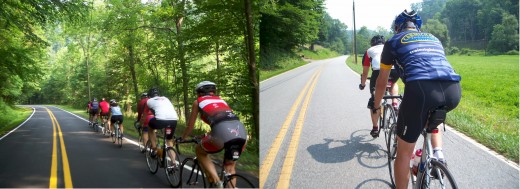
A word of advice: don't experiment with to excess. The aim in nutrition is to have a sufficiency. For instance, because a substance aids the formation of muscle, it doesn't mean that mega-dosing will form lots of muscle; it may form problems instead.
Do not stray from a proven diet, but look for any signs of deficiency. If you're able to identify what the vitamins do, you might identify the deficiency. If you suspect a deficiency, check it out with someone qualified.
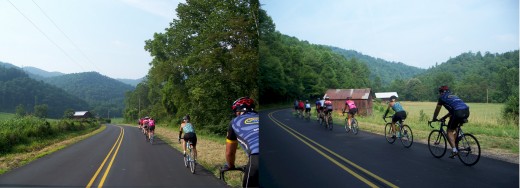
Carbohydrate Loading
Carbo-loading can be tricky. Depriving your body of glycogen can upset you, and there is a danger of unwanted fluid retention, which can be upsetting.
A modified version of the original method may be used more frequently and with fewer side effects.
For the sake of comparison here is the original method:
From the sixth to the fourth day prior to the chosen event, you would concentrate your diet on protein and fat: meat, fish, poultry, eggs, and so on. Carbohydrate intake should be limited. You would be training well and hard throughout this period, which would bring about an exhaustion or lowering of your stores of natural blood glucose, and of glycogen in your liver. You would make sure of this by putting in a really tough training session at the end of this period.
For the next three days leading up to the race, you would eat several meals, which were very rich in carbohydrate, thus forcing the muscles to hold a higher level of glucose than they would accept with a normal diet- which would give you a better store of ready energy.
This has had its disadvantages. One of the problems of eating a surfeit of carbohydrate is that you tend to retain a lot of body fluid. If body fluid is retained in the muscles, it is also retained in the cardiac (heart) muscle. This affects the efficiency of the heart and brings about a lowering of the performance level or, in an unfit person, an element of actual danger.
Cyclists experimenting with the modified method have found it more effective:
That is, to follow a regular diet for the first three days, to avoid the tough, glucose-depleting training session at the end of the period, and simply increase carbohydrate intake considerably over the final three days. Some riders can suffer potassium deficiency during the carbo-loading phase. Avoid this by taking a couple of good glasses of fruit juice each day.
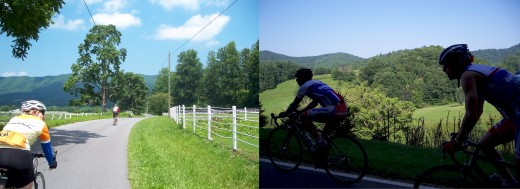
Race Food
As with any food or drink, you can exercise your own personal preferences, but within certain guidelines.
Your last big meal should be at least three hours before the start of the race, and will often be dinner the night before. It should contain plenty of carbohydrates, which will be your energy source for the race.
If there is an early start which is often the case, all you need is a light breakfast to take up the acid in your stomach. Perhaps toast, honey, and drink to your taste. But nothing highly sugary in great quantities. Instead of providing your body with energy, as one might expect, a sudden influx of sugar will usually have the opposite effect: your blood-sugar level will drop, and you will feel sluggish because of the insulin imbalance.
During the race itself, you need to replace your lost body fluids by means of electrolyte replacement drinks- mostly. These drinks replace the mineral salts lost in sweat, usually with added glucose, ostensibly to top up energy sources. However, do try these drinks out beforehand on training rides: they don't suit everyone's stomach, and may upset you. Alternative drinks can be plain water, weak tea (without milk), lemon tea, and cola syrup with water to taste.
The preferred energy replacement would be a drink if possible. There will be no time for eating or unwrapping gels or energy bars quite often.
If an event is long enough and the pace slackens enough there are many choices for food. Banana nut cake comes to mind.
Protein bars and drinks don't really have any place in race feeding unless the race is long and even "ultra distance" events lasting for many hours to days. In our western world we do not have a protein shortage. If anything, we eat too much protein. There are events that can require protein.
Beware of how you mix foods. Some foods mix well with others, while certain types of food should be eaten alone or with others of the same food group. Carbohydrates normally go through the system much faster than proteins and fats, which require between three and five hours for digestion. But when concentrated carbohydrates are eaten together with protein and fat, they are simply trapped in the stomach. The sugars then combine with the various digestive juices to create fermentation. This in turn produces gas, which has to come out at one end or the other. The development and removal of gas from the digestive system takes up body energy (as well as an embarrassment) to mix carbohydrates with the two other groups of food.
Micky Dee's Bag Of Supplements
I have many of the supplements above and I will list others that I believe in for better health and performance:
B-Complex
Vitamin D
Fish oil
CoQ-10:It is found in foods, particularly in fish and meats. In addition to playing a significant role in the energy system of each of our cells, CoQ-10 is also believed to have antioxidant properties and may play a role in heart health. Many who take this supplement notice that this nutrient enhances physical energy. Studies with CoQ-10 have mostly focused on its benefit involving certain types of cardiovascular disease, including congestive heart failure and hypertension.
Glucosamine: is often combined with chondroitin sulfate, a molecule naturally present in cartilage. Chondroitin gives cartilage elasticity and is believed to prevent the destruction of cartilage by enzymes. Glucosamine is sometimes combined with methylsulfonylmethane, or MSM, in nutritional supplements.
Collagen: is the major insoluble fibrous protein in the extracellular matrix and in connective tissue. In fact, it is the single most abundant protein in the animal kingdom. The various collagens and the structures they form all serve the same purpose, to help tissues withstand stretching.
DHEA: levels typically peak by the time people are in their 20s and decline with age, which is why there has been considerable interest in DHEA and its role in aging. In fact, DHEA supplements have been touted as an anti-aging hormone because lower levels of DHEA have been reported in some people with type 2 diabetes, breast cancer, heart disease, osteoporosis, AIDS, adrenal insufficiency, kidney disease and anorexia. Certain medications may also deplete DHEA, such as corticosteroids, insulin, opiates and danazol.
Chlorella: Acts as an efficient detoxification agent to help rid your body of toxins, provides your body with an added defense mechanism, delivers enzymes such as pepsin and chlorophyllase ,which promote your healthy digestion, helps support an efficient elimination system by boosting growth of beneficial flora in your intestinal tract, helps boost your immune system with its antioxidant content. Chlorella is twelve times more digestible protein
than beef. It will rebuild nerve tissue in the brain
and throughout the body.There are too many benefits to list them here.
L-Arginine-ornithine: is an essential amino acid that has been shown to lower blood pressure, treat Hypertension and promote wound healing. Athletes have also found L-Arginine to be beneficial for muscle recovery. L-ornithine may be used as an alternative since it metabolizes to L-Arginine in the body
Lecithin: (Nervous, Circulatory) is a fat-like substance called a phospholipid. It is produced daily by the liver if the diet is adequate. It is needed by every cell in the body and is a key building block of cell membranes; without it, they would harden. Lecithin protects cells from oxidation and largely comprises the protective sheaths surrounding the brain. It is composed mostly of B vitamins, phosphoric acid, choline, linoleic acid and inositol. Although it is a fatty substance, it is also a fat emulsifier. Hence, it supports the circulatory system. Its choline is useful for making acetylcholine.
Anti-oxidants: I get mine from a company called Mannatech. Mannatech provides many products including one of the best skin care products, Emprizone.
Amino acids: I take the PLUS formula by Mannatech.
Ambrotose: I consider Ambrotose the most important supplement. Mannatech owns the patent for this wonderful "healthy cell growing" product.
I sell no products. These are supplements I use and believe in.
Cycling What Can I Say
- Cycling-What Can I Say?
What can I say, in a positive way? How can I sway you to come out and play, On a lean, clean machine in a beautiful scene? Who of you will dare to put wind in your hair, Rain in your face and leave never... - www.usacycling.org -- The Official Website of USA Cycling
Instructions For Having-A Bicycle Ride
- Instructions For Having A Bicycle Ride
This ride and all others should be a permanent thing. By all means set this up to be perpetuated. You can raise funds for the emergency services of your area, for scholarships, or just extra equipment. If... - Ultracycling: The Cyclist\'s Food Guide
Yearly Cycling Training Regimen
- Yearly Cycling Training Regimen
Training is an ugly word to me, especially at my age. In some manner I am indeed training or making an effort to maintain my fitness. There are no off seasons. This isnt a month that is kind to...
Bicycle Pace Line Etiquette
- Bicycle Pace-line Etiquette
Major Taylor Club climbing toward the "Wall" near Townsend, TN. Buckeyes and New Yorkers ride River Road near Burnsville, NC Brothers and sisters from Asheville, NC head toward the Blue Ridge Parkway and the...
Beginning Competitive Cycling-Keys To The Kingdom
- Beginning Competitive Cycling- Keys To The Kingdom
The absolute best thing to do starting out is to take an audit of your physical condition. You should have a physical exam to determine if there are any hidden health issues as you increase the intensity...
Paris Brest Paris 1995
- Paris-Brest-Paris 1995
Paris-Brest-Paris 1995 I had ridden Boston-Montreal-Boston, another 750 mile endurance bike ride, and knew Id have to live "Paris-Brest-Paris for the next few months. This will make my regular riding...
Micky Dee, His Bike, Don Quixote, and Points of Light
- Micky Dee, His Bike, Don Quixote, and Points of Light
Even though youve painted it I can tell that ride. I heard from a cyclist as he pulled alongside. Youre still riding that same old frame. Thats the frame you built that has no...

